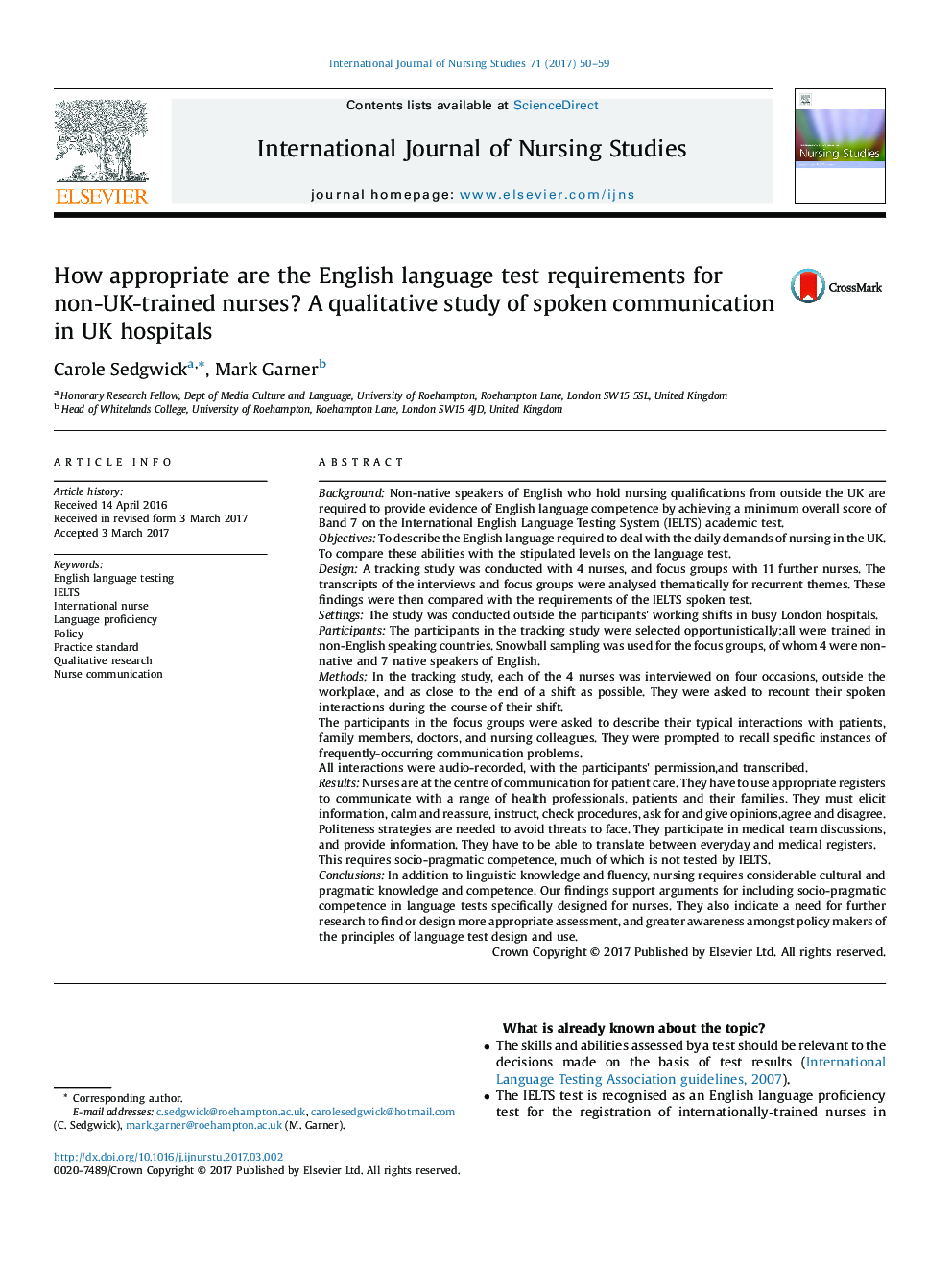| کد مقاله | کد نشریه | سال انتشار | مقاله انگلیسی | نسخه تمام متن |
|---|---|---|---|---|
| 5121103 | 1486498 | 2017 | 10 صفحه PDF | دانلود رایگان |
BackgroundNon-native speakers of English who hold nursing qualifications from outside the UK are required to provide evidence of English language competence by achieving a minimum overall score of Band 7 on the International English Language Testing System (IELTS) academic test.ObjectivesTo describe the English language required to deal with the daily demands of nursing in the UK.To compare these abilities with the stipulated levels on the language test.DesignA tracking study was conducted with 4 nurses, and focus groups with 11 further nurses. The transcripts of the interviews and focus groups were analysed thematically for recurrent themes. These findings were then compared with the requirements of the IELTS spoken test.SettingsThe study was conducted outside the participants' working shifts in busy London hospitals.ParticipantsThe participants in the tracking study were selected opportunistically;all were trained in non-English speaking countries. Snowball sampling was used for the focus groups, of whom 4 were non-native and 7 native speakers of English.MethodsIn the tracking study, each of the 4 nurses was interviewed on four occasions, outside the workplace, and as close to the end of a shift as possible. They were asked to recount their spoken interactions during the course of their shift.The participants in the focus groups were asked to describe their typical interactions with patients, family members, doctors, and nursing colleagues. They were prompted to recall specific instances of frequently-occurring communication problems.All interactions were audio-recorded, with the participants' permission,and transcribed.ResultsNurses are at the centre of communication for patient care. They have to use appropriate registers to communicate with a range of health professionals, patients and their families. They must elicit information, calm and reassure, instruct, check procedures, ask for and give opinions,agree and disagree. Politeness strategies are needed to avoid threats to face. They participate in medical team discussions, and provide information. They have to be able to translate between everyday and medical registers.This requires socio-pragmatic competence, much of which is not tested by IELTS.ConclusionsIn addition to linguistic knowledge and fluency, nursing requires considerable cultural and pragmatic knowledge and competence. Our findings support arguments for including socio-pragmatic competence in language tests specifically designed for nurses. They also indicate a need for further research to find or design more appropriate assessment, and greater awareness amongst policy makers of the principles of language test design and use.
Journal: International Journal of Nursing Studies - Volume 71, June 2017, Pages 50-59
